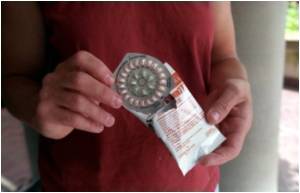
"We know unprotected sex puts women at greater risk for unplanned pregnancies and sexually transmitted diseases, yet there has been a gap in research specifically focusing on changes in condom use during women's college years," said lead author Jennifer Walsh, Ph.D., a researcher with The Miriam Hospital's Centers for Behavioral and Preventive Medicine. "Identifying the demographic and behavioral changes associated with decreases in condom use can eventually lead to more targeted educational and intervention efforts."
The study included 279 first-year female college students who provided monthly reports on condom use. Predictors of condom use were assessed at the beginning of the academic year and included questions about participants' high school GPA, religious beliefs, parents' education levels and whether the had smoked marijuana or engaged in binge drinking during the month prior to college entry (August). Nearly three-quarters of participants were Caucasian.
Using a statistical technique known as latent growth modeling, researchers observed a gradual decline in condom use over the course of the students' first year of college, as predicted. This included condom use with all partners and with romantic partners specifically.
However, the study revealed several unexpected predictors of initial condom use. African American women, women who did not smoke marijuana, women who said they are less likely to practice safe sex after drinking and women with more previous sexual partners were less likely to use condoms at the start of the study.
Changes in condom use during the course of the year were predicted by women's socioeconomic status, high school GPA and substance use.
"College women often engage in serial monogamy, resulting in multiple partners during the college years, and they are often unaware of their partners' risk. This makes continued condom use important for women's health," said Walsh.
Source-Eurekalert













